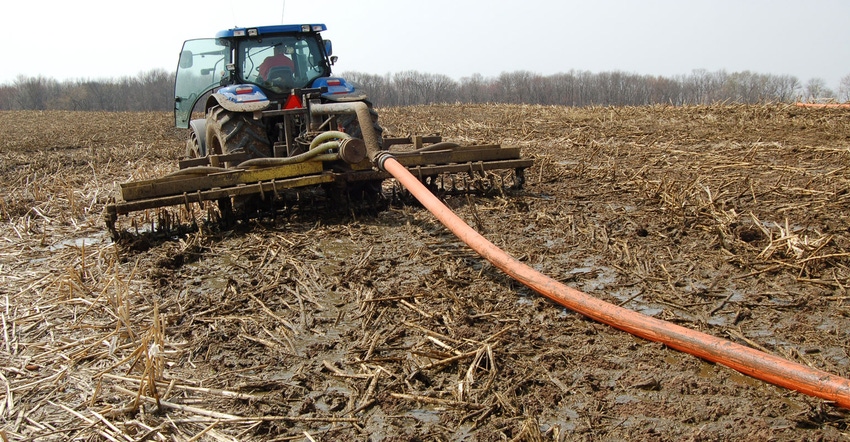June 29, 2020

Manure has long been recognized as a premium plant food.
While the availability of manufactured fertilizers certainly allowed more acres to be efficiently cropped, farms with access to livestock manure report significant advantages, including higher yields and lower fertilizer costs. Manure is often credited with helping improving soil organic matter and feeding microbes that help cycle nutrients as well.
As is often the case, too much of a good thing can become a bad thing, and there are plenty of anti-farming activists regularly hitting the media with their fearmongering message that manure is an imminent threat to the environment. Their agenda is clear — fewer farm animals and farmers.
Handled properly, manure poses little environmental risk. Farmers continue to work on improving their manure storage, handling and application methods. Not only are they addressing environmental concerns, they are striving to get the most out of this precious, though somewhat fragrant, asset.
Here are five key advances helping improve manure utilization and reduce environmental risk:
Better manure handling equipment. The old pitchfork worked, but applying manure uniformly was a challenge. Today, manure spreaders do a much better job and can be calibrated to apply just the necessary rate. Innovations such as drag hoses for liquid manure result in less compaction in the field and less traffic and wear on roads.
Improved livestock diets. Phytase added to swine and poultry feeds reduces the amount of phosphorus in manure, often resulting in manure that more closely aligns to both nitrogen and phosphorus needs of the growing crop.
Availability of manufactured fertilizer. The ability to add commercial fertilizer to balance the nutrients present in manure allows for better manure use in that manure can be applied at a rate that meets one nutrient need, let’s say phosphorus. Commercial nitrogen can then be applied, rather than overapplying P to meet N needs. The presence of commercial fertilizer also allows farmers to avoid applying manure in higher risk conditions while still meeting crop needs.
Better agronomics. Research continues to add to our collective understanding of plant needs. Knowing how much nitrogen is needed and when allows farmers to adjust manure rates and supplement with in-season applications (sometimes with liquid manure) to improve efficiency.
Greater environmental awareness. Most every farm has a range of field types, from flatter to more sloped, some further from water resources than others. Farmers are going to great lengths to match available manure with appropriate fields.
The bottom line is that these and other practices that maximize the value of manure further improve profits and benefit the environment are becoming the norm.
Formo is executive director of the Minnesota Agricultural Water Resource Center.
About the Author(s)
You May Also Like






